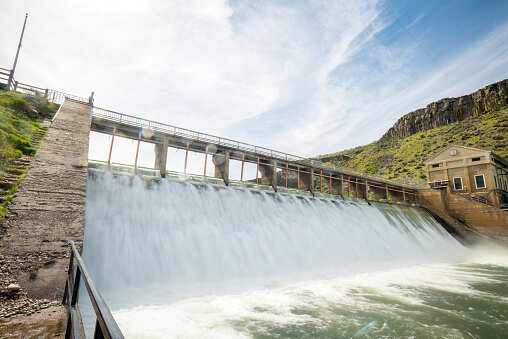 SARAJEVO: A Bosnian environmental group that had lodged a complaint over the construction of the Buk Bijela hydropower plant on the Drina river bordering Montenegro on Thursday welcomed a local court decision to annul the plant's environmental permit.
SARAJEVO: A Bosnian environmental group that had lodged a complaint over the construction of the Buk Bijela hydropower plant on the Drina river bordering Montenegro on Thursday welcomed a local court decision to annul the plant's environmental permit.Bosnia and its Western Balkan neighbours have prompted a series of protests with government plans to add 3,000 hydropower plants across the region, about a third of them in protected areas, which campaigners say threaten irreparable environmental damage.
Environmental group Aarhus Centre said the Banja Luka District Court had annulled the permit on May 13. The ruling, made available by the group to Reuters, showed that the original environmental permit had been extended instead of renewed as prescribed by the law.
It also said that the ministry for spatial planning and environment should have annulled the previous permit, given that construction had not begun within four years of its issuance. There were also no public consultation about environment impact in Bosnia or Montenegro, the group said.
The Serb Republic Energy Ministry revised the Buk Bijela plant's capacity upwards by about a third to between 120 and 125 megawatts (MW) and said that state-run power utility ERS could set up a joint venture with Serbian peer EPS to pursue the project.
ERS did not have a spokesman available for immediate comment on the ruling, it told Reuters
"The latest environmental impact assessment of the project said it would have no impact on the Tara river, the Drina's main tributary in Montenegro, but without any evidence provided," Aarhus Centre said. The canyon of the Tara is listed as a wildlife-rich UNESCO heritage site.
Campaigners say the dams would drain rivers used by local communities for drinking, farming, fishing and tourism while destroying the habitat of species unique to the region.
Non-governmental groups Riverwatch and EuroNatur last year published a document showing that three quarters of the rivers in the Balkans are so ecologically valuable they should be completely off-limits for hydropower development. (Reporting by Maja Zuvela Editing by David Goodman)